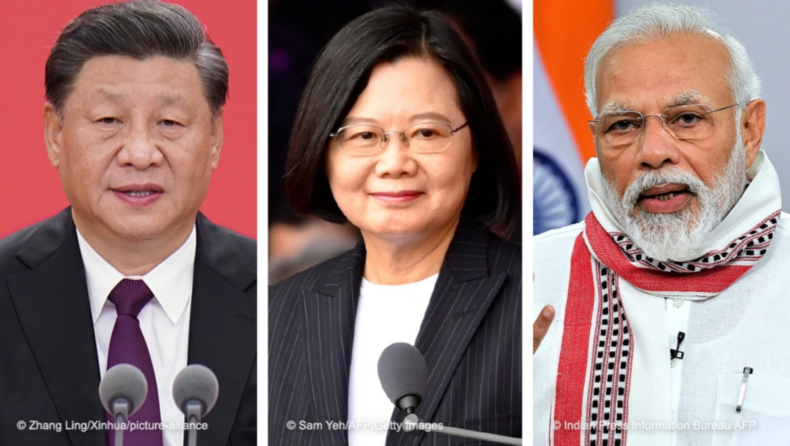India must be clear about the illegal land occupation by the Chinese Army along the Actual Line of Control and should not be concerned with Chinese intimidation or threat. India can lesson from the Taiwan standoff against Chinese threat of escalation.
- Nancy Pelosi, the speaker of the US House, paid a quick visit to Taiwan despite harsh warnings from China. This could worsen the already poor relations between the US and China, which would have serious consequences for Taiwan.
- If China is unable to unite its claimed regions, particularly Taiwan, then its claims to be a rising powerhouse may come off as hollow.
- For the United States, it’s about restoring the rapidly declining American credibility in the eyes of both its allies and adversaries.
- It is important for Taiwan to stand up to Chinese bullying and make Beijing aware of its red lines. Although it is unlikely to result in a full-scale invasion of Taiwan or a conflict between China and the U.S., the crisis that started with Ms. Pelosi’s travel to Taipei is still developing, and it is unclear how it will end at this time.
- There seems to be confusion about how to handle the challenge posed by a hostile Chian, despite growing realization in New Delhi that it is critical to do so. In that sense, the Taiwan crisis at the very least teaches New Delhi three lessons.
One China Policy
- In a diplomatic sense, it is a recognition of China’s stance that there is only one Chinese government.
- As a result of this policy, the US recognizes and maintains formal relations with China rather than Taiwan, which China views as a breakaway province that will one day be united with the mainland.
- One of the main pillars of Sino-US ties is the One China Policy. It is also the cornerstone of Chinese diplomacy and policy-making. It differs with the One China Principle, according to which China maintains that Taiwan is an integral component of one China and will one day be reunited.
- The US policy does not support Beijing’s stance, and as part of that policy, Washington continues to have a close unofficial connection with Taiwan, including continuing to sell the island its necessary defence weapons.
Taiwan`s Position
- Taiwan decided to move forward with congressional delegations with high-profile meetings and public remarks rather than prevent conflict with China, including military retribution.
- Taiwan also made it plain that it will not yield in the face of Chinese threats or repercussions.
- Therefore, Taiwan claims that the answer to Chinese aggression is not to please China.
- Despite recent threats and an increase in animosity between Taipei and Beijing, Taiwan still conducts business with mainland China.
- Mainland The major trading partner of Taiwan is China, with whom it runs an annual trade deficit of between $80 billion and $130 billion.
- By 2021, Taiwan has made 198.3 billion dollars’ worth of investments in China, compared to only $2.5 billion from the mainland during the same period.
4 Mistakes of India
- As long as the Chinese People’s Liberation Army (PLA) is breaking established territorial limits on the LAC, India shouldn’t hoist or meet Chinese leaders.
- Even during military standoffs between the two militaries, India should not unilaterally appease Chinese sensibilities. India should also not hesitate to maintain friendly ties with Taiwan (since the 2017 Doklam standoff, parliamentary delegation visits and legislature-level dialogues between India and Taiwan have not occurred).
- When China vehemently opposed the QUAD groups in the early 2000s, India should not have delayed them. In hindsight, it was a poor plan to virtually abandon the QUAD in order to appease Beijing.
Lessons for India
- India must provide clarification regarding the 2020 border events in Ladakh, particularly the PRC’s illegitimate seizure of Indian territory.
- To clearly defend the sovereignty of our borders by underlining the danger that China poses.
- Due to local pressures, the Indian government lacks this clarity, which gives China permission to assert its claim to Indian land.
- International society, including well-wishers from India, is confused by ambiguous messaging regarding the Chinese danger along the LAC.
- India’s uncertain attitude on the LAC prevents it from receiving diplomatic or other backing from its allies.













